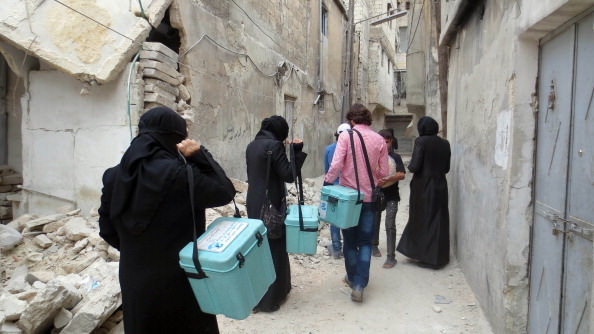
A company in Boston, MA, wants to change the way that vaccines are administered, and Bill and Melinda Gates are lending them a hand to make it a reality.
Vaxess Technologies, Inc. received two grants from The Bill and Melinda Gates Foundation, totaling $6 million dollars, to fund their innovative work in vaccine stabilization and delivery technologies.
In vaccine administration, even with an incredibly effective vaccine, there are perpetual hurdles to overcome. One, for example, is the availability of syringes and needles. This was an issue just last year when, despite the long awaited arrival of the yellow fever vaccine in the African regions where outbreaks were occurring - there was a needle shortage and the vaccine could not be administered.
Another hurdle is referred to as the 'cold chain' - the need to keep a vaccine refrigerated. This may not be such an issue here, but it is a huge concern in other areas of the world - low resource areas that lack consistent refrigeration. In the battle against polio, the trained polio vaccinators need to walk many miles each day in Syria, Pakistan and Afghanistan - the strong holds of the polio virus - trying to reach each and every last child. They do this carrying one or multiple coolers to keep the vaccine from going bad (photo below).

The technology developed by Vaxess is looking to change how vaccination is done by developing new technologies that remove the need for both needles and the cold chain. Their innovation is called the MIMIX sustained-release microneedle patch platform. The MIMIX is a patch that is placed on the skin for five minutes, with no need for needles.
A depiction of the patch, from the website, is shown here.
![]()
MIMIX uses silk at the heart of a novel stabilization technology. Specifically, fibroin, one of the two main proteins found in silk, has emerged recently as the hottest new material for protecting and preserving biological materials. Its structure gives the silk the ability to protect biological compounds, keeping them stable at higher temperatures and protecting them from degradation.
The funding from the Bill and Melinda Gates Foundation, which is committed to improving vaccine access in resource poor settings, will go towards the preclinical development of the MIMIX for two vaccines - the polio vaccine (IPV) and measles rubella (MR) vaccines.
The company, Vaxess, was founded by a group of students at Harvard University who were interested in finding solutions to increase vaccine access. The company was later selected as the winner of the 'President's Innovation Challenge' - a contest that asks Harvard students to "engage with issues facing the world and to discover ways to make the world work better." And, it looks like the people at Vaxess are well on their way to doing just that.
